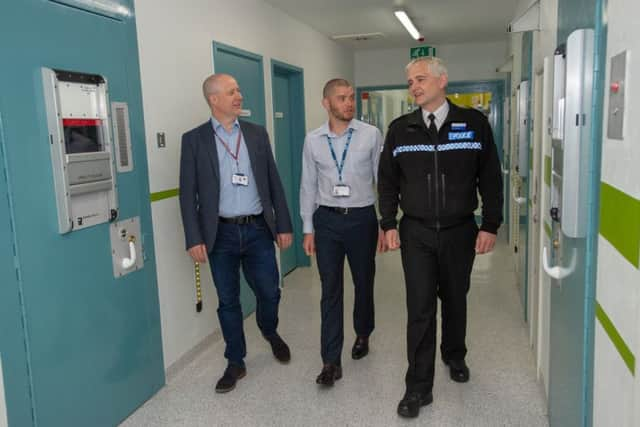Northamptonshire Police and Crime Commissioner reveals Time 2 Listen mental health findings


The consultation, believed to be the first of its kind ever held in the county, involved more than 1,200 people who have either mental illness, autism or ADHD, as well as more than 260 professionals working in health, policing, criminal justice and the voluntary sector.
Northamptonshire Police and Crime Commissioner, Stephen Mold, set up the Time 2 Listen consultation with results revealing some clear themes.
Advertisement
Hide AdAdvertisement
Hide AdIt is estimated that at least 20 per cent of all incidents dealt with by Northamptonshire Police each year are related in some way to mental health - although the real figure may be much higher.


The Time 2 Listen report contains 34 recommendations for criminal justice and health agencies, along with an action plan to implement them through two existing, multi-agency groups - the Mental Health Transformation Board Steering Group and the Mental Health and Criminal Justice Board.
The recommendations include: consistency of approach across all service providers; developing a shared vision across the criminal justice and health systems; shared training of professionals to ensure high-quality services and awareness of each other’s roles and responsibilities.
Stephen Mold, said: “Mental health concerns are a major factor driving demand for policing services and I wanted to understand how it feels for a vulnerable person when they come into contact with our services.
Advertisement
Hide AdAdvertisement
Hide Ad“Some of the testimony from people we spoke to was extremely hard to hear.
“This has shown me that we have a lot of work to do so that vulnerable people receive the proper support.
“We have to make sure that professionals are better supported, understand each other’s roles and are better co-ordinated to reduce the impact of mental health concerns on services.”